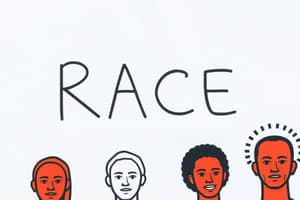Podcast
Questions and Answers
What are the two classes of hypertensive crisis that require immediate intervention?
What are the two classes of hypertensive crisis that require immediate intervention?
Hypertensive emergency and hypertensive urgency
What blood pressure readings define hypertensive emergency and hypertensive urgency?
What blood pressure readings define hypertensive emergency and hypertensive urgency?
SBP exceeds 180 mm Hg or DBP exceeds 120 mm Hg
What factors may contribute to the occurrence of hypertensive emergencies and urgencies?
What factors may contribute to the occurrence of hypertensive emergencies and urgencies?
Secondary hypertension, poorly controlled hypertension, undiagnosed hypertension, abrupt discontinuation of medications
What is the recommended frequency of monitoring blood pressure during treatment of hypertensive emergencies and urgencies?
What is the recommended frequency of monitoring blood pressure during treatment of hypertensive emergencies and urgencies?
What are the intended effects of beta-blockers?
What are the intended effects of beta-blockers?
What are the contraindications for using beta-blockers?
What are the contraindications for using beta-blockers?
Which beta-blocker is preferred for patients with heart failure with reduced ejection fraction (HFrEF)?
Which beta-blocker is preferred for patients with heart failure with reduced ejection fraction (HFrEF)?
What is the mode of action of clonidine?
What is the mode of action of clonidine?
What are the common side effects of Calcium Channel Blockers?
What are the common side effects of Calcium Channel Blockers?
What is the mechanism of action of Diuretics?
What is the mechanism of action of Diuretics?
What are the contraindications for Potassium-Sparing Diuretics?
What are the contraindications for Potassium-Sparing Diuretics?
What is the mechanism of action of Beta-Blockers?
What is the mechanism of action of Beta-Blockers?
What are the first-line antihypertensive agents recommended for most patients?
What are the first-line antihypertensive agents recommended for most patients?
What is the first-line antihypertensive agent recommended for African American patients with hypertension and without heart failure or CKD?
What is the first-line antihypertensive agent recommended for African American patients with hypertension and without heart failure or CKD?
What are the major actions of thiazide or thiazide-type diuretics?
What are the major actions of thiazide or thiazide-type diuretics?
What are the major actions of ACE inhibitors?
What are the major actions of ACE inhibitors?
What are the recommended initial drug therapies for hypertension in individuals of African American descent?
What are the recommended initial drug therapies for hypertension in individuals of African American descent?
What are the recommended initial drug therapies for hypertension in non-African American populations?
What are the recommended initial drug therapies for hypertension in non-African American populations?
What is the recommended first-line therapy for stage 1 hypertension with a blood pressure goal less than 130/80 mm Hg?
What is the recommended first-line therapy for stage 1 hypertension with a blood pressure goal less than 130/80 mm Hg?
When should initial drug therapy with a combination of two antihypertensives be considered?
When should initial drug therapy with a combination of two antihypertensives be considered?
What is the definition of resistant hypertension?
What is the definition of resistant hypertension?
What are the risk factors for resistant hypertension?
What are the risk factors for resistant hypertension?
What are the different groups of drugs used in the management of primary hypertension?
What are the different groups of drugs used in the management of primary hypertension?
How do these drugs act to decrease blood pressure?
How do these drugs act to decrease blood pressure?
What are some antihypertensive drugs that are reportedly equally effective in African Americans and Caucasians?
What are some antihypertensive drugs that are reportedly equally effective in African Americans and Caucasians?
Which class of antihypertensive drugs is less effective as monotherapy in African Americans?
Which class of antihypertensive drugs is less effective as monotherapy in African Americans?
What factors contribute to African Americans requiring multiple drugs for hypertension treatment?
What factors contribute to African Americans requiring multiple drugs for hypertension treatment?
Which class of antihypertensive drugs is recommended as first-line agents for treating hypertension in patients with heart failure or asymptomatic left ventricular dysfunction?
Which class of antihypertensive drugs is recommended as first-line agents for treating hypertension in patients with heart failure or asymptomatic left ventricular dysfunction?
What are some potential benefits of ACE inhibitors in people with renal impairment?
What are some potential benefits of ACE inhibitors in people with renal impairment?
What are some potential side effects of ACE inhibitors in people without diabetes?
What are some potential side effects of ACE inhibitors in people without diabetes?
Flashcards are hidden until you start studying




